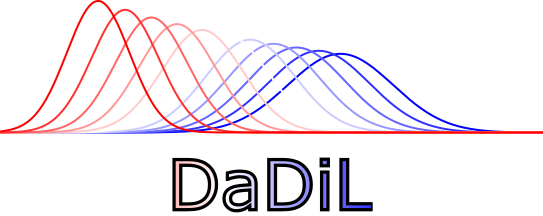Multi-Source Domain Adaptation through Dataset Dictionary Learning in Wasserstein Space
This paper seeks to solve Multi-Source Domain Adaptation (MSDA), which aims to mitigate data distribution shifts when transferring knowledge from multiple labeled source domains to an unlabeled target domain. We propose a novel MSDA framework based on dictionary learning and optimal transport. We interpret each domain in MSDA as an empirical distribution. As such, we express each domain as a Wasserstein barycenter of dictionary atoms, which are empirical distributions. We propose a novel algorithm, DaDiL, for learning via mini-batches: (i) atom distributions; (ii) a matrix of barycentric coordinates. Based on our dictionary, we propose two novel methods for MSDA: DaDil-R, based on the reconstruction of labeled samples in the target domain, and DaDiL-E, based on the ensembling of classifiers learned on atom distributions. We evaluate our methods in 3 benchmarks: Caltech-Office, Office 31, and CRWU, where we improved previous state-of-the-art by 3.15%, 2.29%, and 7.71% in classification performance. Finally, we show that interpolations in the Wasserstein hull of learned atoms provide data that can generalize to the target domain.
PDF Abstract



 Office-31
Office-31
 Caltech-256
Caltech-256
